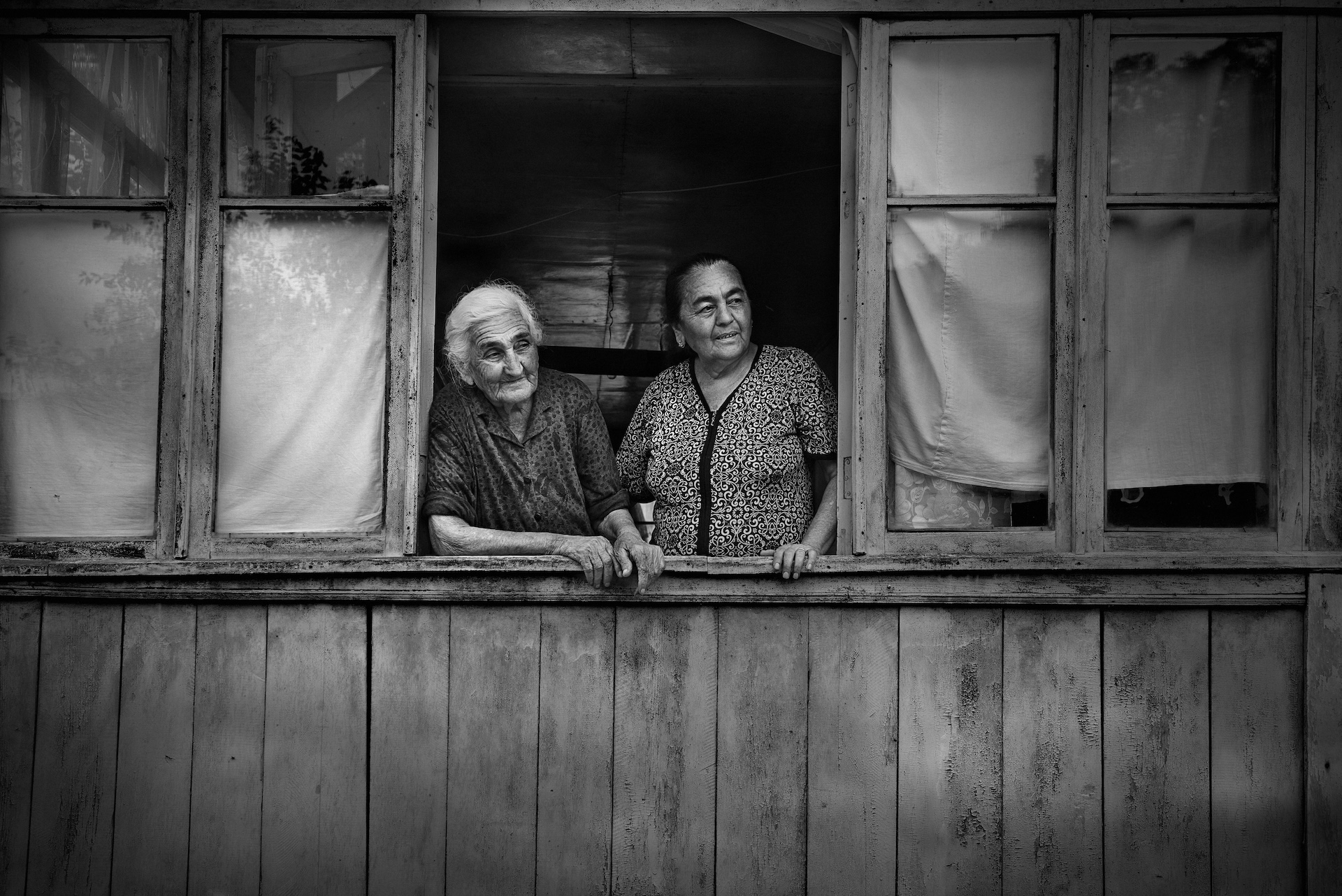
The fate of this 95-year-old women, seen here in the company of her neighbour, was turned upside down by the First Nagorno-Karabakh War. Her four sons perished in the conflict.
Like thousands of others, refusing the annexation of their territory to Azerbaijan cost them their lives : this imposed administrative situation was never accepted by the native population, as history has repeatedly shown.
At the end of World War I, when the fall of the Russian Empire reshaped the political landscape of the region, the Congress of Nagorno-Karabakh voted against submission to the tutelage of the newly established Republic of Azerbaijan and in favour of joining Armenia. However, this desire was soon dismissed by the Bolshevik Party.
In 1923, Nagorno-Karabakh was turned into an autonomous region, yet it repeatedly reaffirmed its will to determine its own future. This aspiration was once again confirmed by a vote of the regional parliament in 1988 but yet again ignored by the central authorities.
In 1991, following the collapse of the Soviet Union, the local Armenian community overwhelmingly voted for independence, followed by a formal declaration. More recently, in 2017, over 87% of voters approved the new constitution of Nagorno-Karabakh in a referendum. Everything indicates that a large majority of the population had long aspired to the existence of a fully-fledged state.
However, despite the establishment of democratic institutions, this aspiration was never taken into account, as the Republic of Nagorno-Karabakh was never recognized at international level. Yet the United Nations Charter, signed in 1945, reaffirmed the principle of the right of peoples to self-determination. In practice, however, this right is complex to enforce, particularly due to the risk of fragmenting the world.
For this reason, international bodies have generally prioritized the principle of territorial integrity, seeing it as a guarantee of stability, over the right to self-determination. Thus, Azerbaijan can legitimately claim sovereignty over Nagorno-Karabakh. Despite its almost entirely Armenian population, the territory was assigned to Azerbaijan in 1921 by the Caucasian Bureau of the Bolshevik Party, with the approval of the Soviet People’s Commissar for Nationalities, Joseph Stalin.
This decision has never been challenged by UN member states. Even less so today, as Azerbaijan’s influence as a gas and oil-producing country is incomparably greater than that of small, depopulated, and weakened Armenia: a country now home to many refugee women who ask themselves why their children died defending Nagorno-Karabakh.